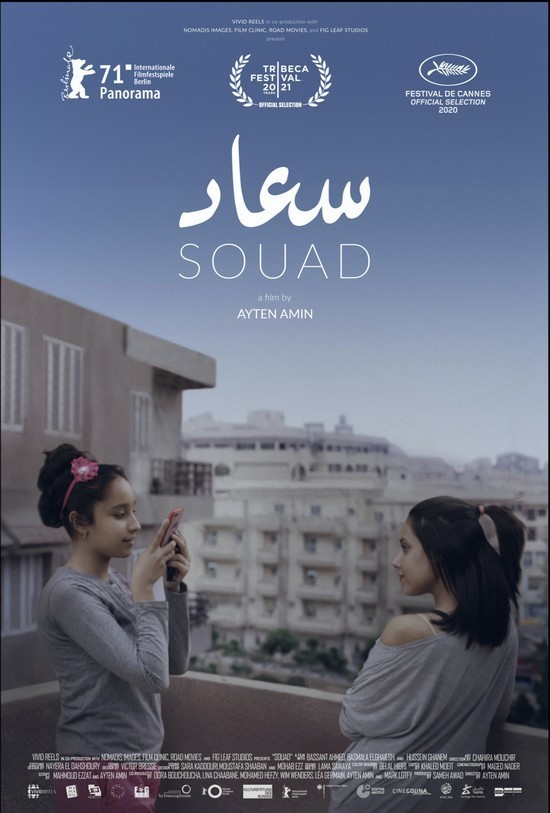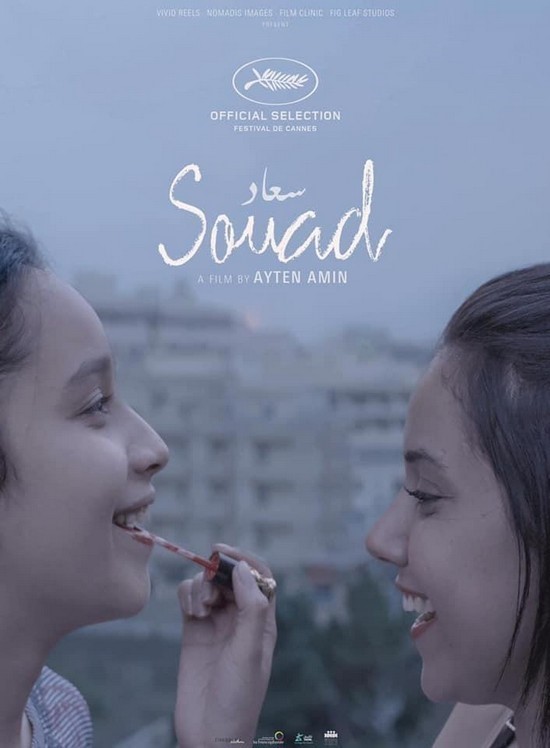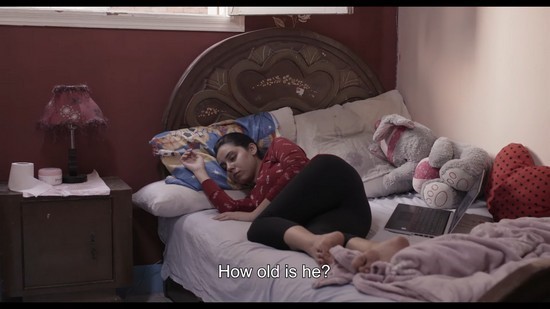Souad, Ayten Amin’s feature film, paints the picture of the
rigid family relationships between young girls and parents, but also situates
two sisters in a conservative social reality.
اضافة اعلان
The film, which will be screened today at 6 pm at Taj Cinema
as part of
Amman Film Festival, competing in the Arab narrative film category,
speaks for millions of young people in post-revolutionary Egypt who spend their
formative years in a state of political and ethical limbo.
Souad, a young student from the city of Mansoura, in the
northern Nile Delta, between Alexandria and Cairo, seeks ways out of the
incompatibility between her growing sexual desire and societal norms. Souad is
the film’s main protagonist, and is built up as such from the start, dramatically
and through the atmosphere and image design.
When Souad literally disappears from the screen in the
middle of the film, Egyptian director Amin breaks a taboo in two senses: one
cinematic and one social. This surprising turn deprives the story and the
viewers of their heroine and at the same time brings to the big screen a topic
that only gained public attention in the years after the Egyptian revolution in
2011.

The film begins in a bus, an important social, regionally.
Nineteen-year-old Souad (Bassant Ahmed) shows photos and regales strangers with
stories about her dear boyfriend, Ahmed (Hussein Ghanem), who is doing his
military service in the
Sinai Peninsula. After a quick change of bus, we see
Souad who continues to converse, but the story has changed: Ahmed is older, he
studies medicine and descends from a long line of doctors. We immediately feel
sorry for Souad as we realize that her lies are her survival mechanism, and not
the expression of an unhealthy character.
The film ... speaks for millions of young people in post-revolutionary Egypt who spend their formative years in a state of political and ethical limbo.
Her life in the countryside of Zagazig, filmed with a camera
in focus and shown through suffocating images reminiscent of the cinema of the
Dardenne brothers, is a pressure cooker of social tensions ready to explode.
Parental understanding is limited, and her main social circle, which includes
Wessam (Hager Mahmoud), more romantically experienced, is well-meaning, but
also more likely to provoke her and drive her crazy. On top of that, she
seethes and agonizes over Ahmed’s indifference to her love messages, which he
leaves unanswered, a feeling only exacerbated by the social media smokescreen
(where he presents himself as a “content creator” for Facebook and
TikTok working in trendy Alexandria... in short, his job is literally to invent new
public personas for people).
Following a tragic breakup for Souad, the film turns its
attention to her younger sister Rabab (Basmala Elghaiesh), more self-confident,
who sets out on a secret trip to Alexandria to meet Ahmed in person, something
Souad has been denied throughout the story. This change of angle is accompanied
by a new title appearing on the screen, as if designating a new beginning for
the film, and we realize then that the film is in fact a multi-faceted
“anthology” which initially fooled us into believing that we should expect a
more restricted study of a single character.

Rabab and Ahmed strolling through the streets of Alexandria
begin to form a strange duo that almost looks like a couple, and the atmosphere
of the film changes, beginning to evoke more
Before Sunrise or New York-Miami,
a transition more fantasized and improbable than all the developments that had
come before.
Like the best humanist directors, Amin manages to modulate
the different tones and create a narrative arc that evokes the triumph of life
and optimism over tragedy, even if the gaze focuses on the supposedly
disastrous effects of the social networks, and is somewhat sensationalized and
awkward.
The audacity of the film is evident in how it initiates a new, unexpected journey at a time when the narrative framework seemed well established.
It is also true that these two traits are typical of
adolescence, so it only remains for us to salute this work, which pays homage
to youthful anguish instead of adopting the dismissive or condescending
attitude of so many
other films.
As close as possible to the youth of a teenager, the film
begins as a documentary around a camera that is discreet and modest but
omnipresent. The film does not seem to have any other pretensions than to get
as close as possible to the daily life of a modern-day Egyptian teenager whose
virtual relationships seem to occupy a lot of her time and her emotions and
integrate her into the dynamics of the rest of the world. Her daily life also
includes her place in a conservative family where women are condemned to serve
men. Her
younger sister remains admiring and will continue her journey beyond
her constraints.
The story has two highlights; each part is carried by a
sister whose gaze enriches the portrait of the other.

The audacity of the film is evident in how it initiates a
new, unexpected journey at a time when the narrative framework seemed well
established.
The narrative reversal proves to be of great expressive
force in the service of the movie character.
Young women are the protagonists of this film which
delicately brushes on questions about the contemporary world caught between the
promises of emancipation in the virtual world and the prosaic disappointments
of physical society.
Read more Reviews
Jordan News








